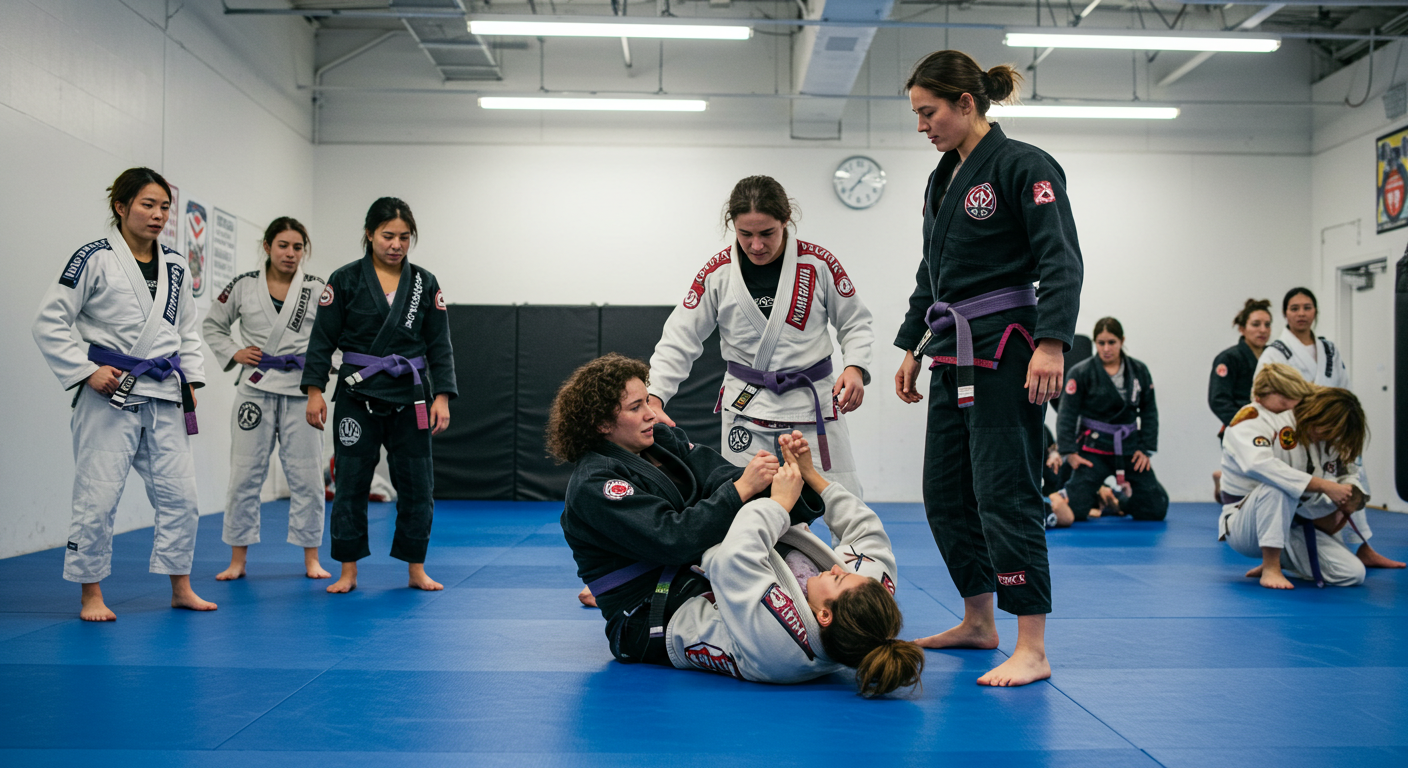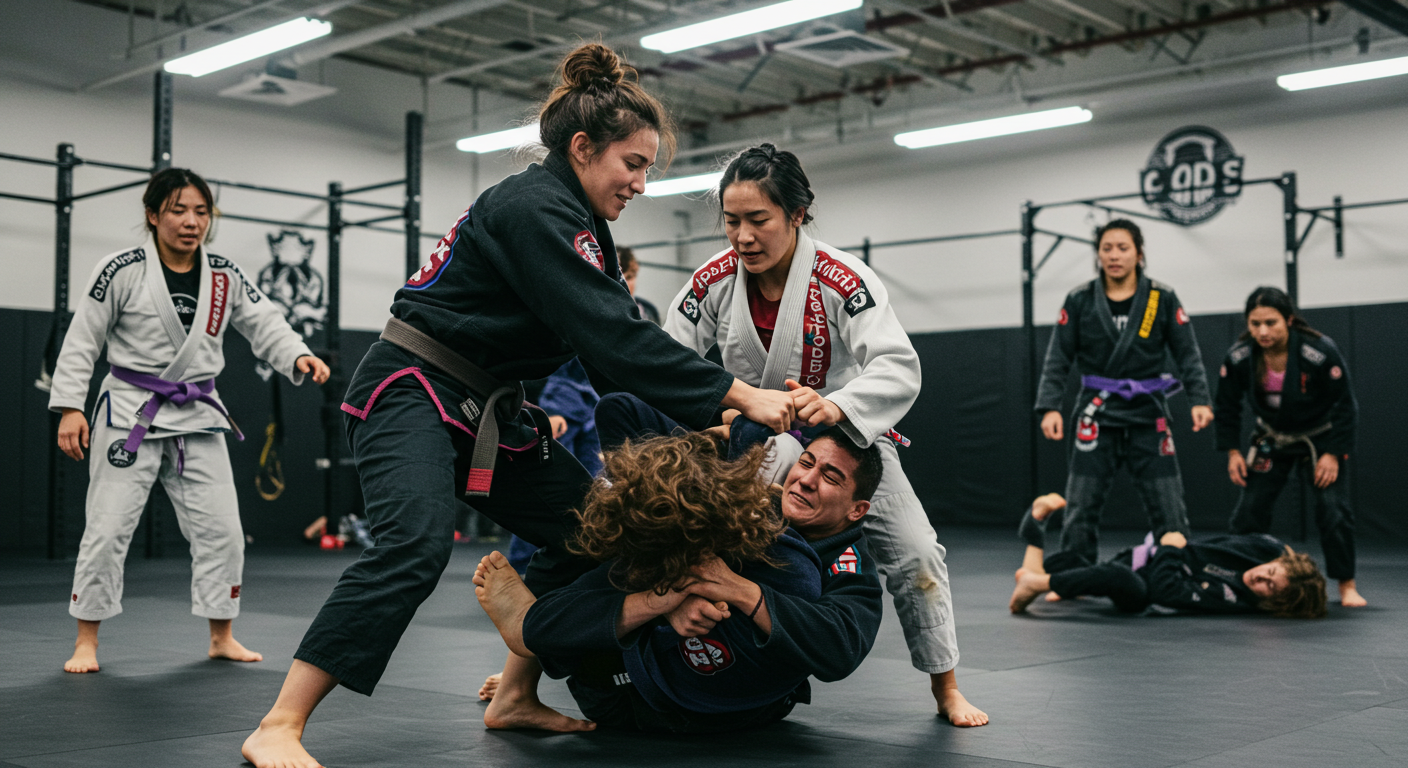
Over the past decade, more and more women have been stepping onto the mats to experience the power of women’s Brazilian Jiu Jitsu. In communities like Downers Grove, this martial art is not just about learning techniques—it’s about empowerment, confidence, and safety. At academies such as Team Kuma Jiu Jitsu, women are finding a welcoming environment where they can train, grow stronger, and learn life-saving self-defense skills.
The rise of jiu jitsu women is no coincidence. As awareness of personal safety grows, women are increasingly seeking martial arts that teach practical skills without relying on brute force. Unlike striking-focused arts, Jiu Jitsu emphasizes leverage and strategy, making it especially effective for smaller individuals.
Beyond safety, women are drawn to the sense of empowerment that comes from mastering challenging techniques. Each time they step on the mat, they prove to themselves that they can overcome obstacles, both physical and mental.
For years, martial arts were seen as male-dominated. Today, female jiu jitsu fighters are shattering those stereotypes. From local practitioners to world champions, these women demonstrate that strength, skill, and determination are not limited by gender. Their presence inspires beginners, showing that women of all backgrounds can thrive in Martial Arts Training Downers Grove. Role models in the sport create a ripple effect, encouraging more women to join classes, build confidence, and embrace martial arts as part of their lifestyle.
One of the strongest reasons women choose BJJ is its real-world application. Unlike choreographed routines, women’s martial arts training in Jiu Jitsu equips students with skills that work in realistic scenarios.
For example, women learn:
Escapes from grabs and holds.
Ground techniques for defending against larger attackers.
How to control situations without relying on strikes.
This practical approach gives women peace of mind, knowing they can respond effectively if they ever face a threatening situation.
A key philosophy of BJJ is that technique beats strength. Through jiu jitsu training women, practitioners quickly see how leverage and positioning can overcome size differences.
This is especially empowering for women, as they often face larger and stronger opponents in real life. Learning to control someone through proper grips, sweeps, and submissions allows women to protect themselves without fear or hesitation.
At Team Kuma Jiu Jitsu, instructors focus on making sure women feel comfortable applying these techniques, building both skill and confidence in a safe, structured environment.
While self-defense is often the main reason women start BJJ, the benefits extend far beyond that. Training provides:
Strength and Endurance – Every class works the entire body.
Flexibility and Coordination – Movements like hip escapes and sweeps enhance agility.
Stress Relief – Training allows women to release daily stress in a healthy, constructive way.
Mental Toughness – Overcoming challenges on the mat translates into resilience in everyday life.
For many women, BJJ becomes both a fitness routine and a lifestyle that supports long-term health.
Another reason so many women choose Jiu Jitsu is the sense of community. In Downers Grove, academies like Team Kuma Jiu Jitsu offer more than just training—they provide a supportive network of teammates and coaches.
The culture encourages women to uplift one another, celebrate progress, and face challenges together. For newcomers, this makes stepping onto the mats less intimidating and more inviting.
As more women join the sport, young girls are being introduced to Jiu Jitsu earlier than ever. Seeing female jiu jitsu fighters compete and succeed shows them that they too can be strong, capable, and confident.
Girls who train from a young age build not only physical skills but also leadership, focus, and resilience. Parents in Downers Grove are increasingly recognizing the value of introducing their daughters to BJJ as both a sport and a form of self-defense.

Starting something new can feel intimidating, but the first class is designed to be beginner-friendly. In most women’s programs, the experience includes:
Women quickly discover that Jiu Jitsu isn’t about being the strongest—it’s about learning to adapt, think strategically, and trust the process.
In recent years, Downers Grove has seen rapid growth in martial arts, particularly for women. With a safe, family-oriented community and highly skilled instructors, local academies are creating opportunities for women of all ages to train.
Programs tailored to women provide comfort, inclusivity, and empowerment. By choosing a trusted academy like Team Kuma Jiu Jitsu, women know they are entering a positive environment where they can grow stronger both physically and mentally.

Women’s Brazilian Jiu Jitsu is more than just a martial art—it’s a pathway to empowerment, fitness, and resilience. For women in Downers Grove, BJJ offers practical self-defense skills while also fostering a sense of community, confidence, and personal growth.
Whether you’re looking to improve fitness, learn self-defense, or simply challenge yourself in a supportive environment, Jiu Jitsu provides an avenue for transformation. With schools like Team Kuma Jiu Jitsu leading the way, more women are discovering just how powerful life on the mats can be. Join a class today and start your journey with Women’s Brazilian Jiu Jitsu in Downers Grove!
Is BJJ safe for women beginners?
Yes. Classes are supervised and beginner-friendly, with a strong focus on safety and proper technique.
How long before women can use Jiu Jitsu for self-defense?
While basics can be learned in a few months, consistent training builds real confidence and effectiveness over time.
Do I need to be athletic to start training?
No. Jiu Jitsu is designed for all body types and fitness levels. Progress comes with consistency.
Are there classes specifically for women only?
Yes, many academies offer women’s-only classes in addition to mixed training sessions.
Can women compete in Jiu Jitsu tournaments?
Absolutely. There are women’s divisions in local, national, and international competitions